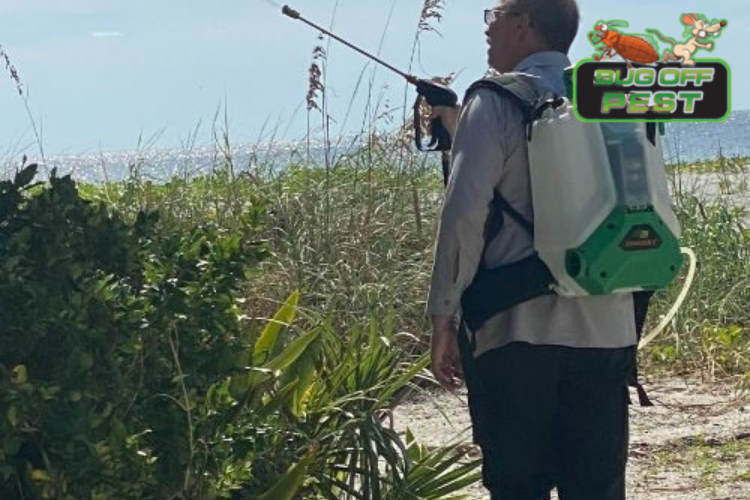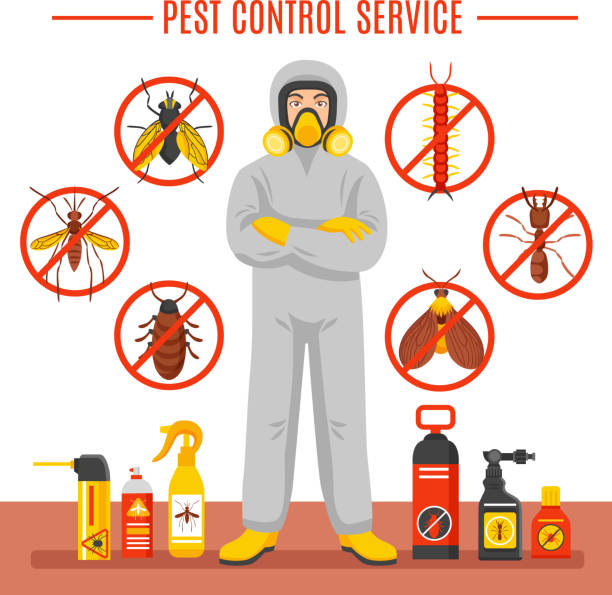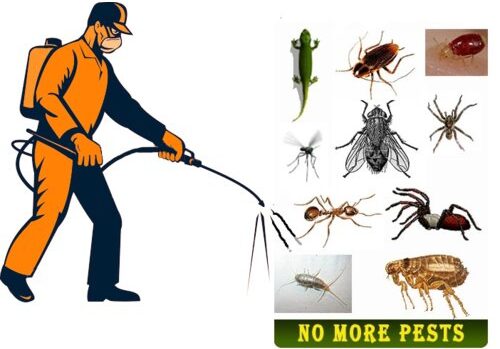Trusted Commercial Pest Control Service in Port Charlotte
Trusted Commercial Pest Control Service in Port Charlotte
Blog Article
Comprehensive Overview to Recognizing Insect Control Techniques and Their Treatment
Comprehending bug control approaches is important for effective administration of undesirable microorganisms that posture risks to health and wellness, agriculture, and property. What variables should be taken into consideration when picking the proper insect control technique for a details situation?
Summary of Bug Control Techniques
Insect control methods incorporate a selection of strategies designed to manage and remove unwanted microorganisms that can hurt human wellness, agriculture, and residential property. Reliable parasite administration is vital for maintaining the integrity of environments and making certain the security of food materials. These methods can be extensively categorized into 3 primary methods: social, mechanical, and biological controls.

Social control involves changing farming practices or ecological conditions to minimize parasite facility and reproduction. Mechanical control depends on physical obstacles or tools to protect against pest accessibility or directly remove them.
Biological control utilizes natural predators, bloodsuckers, or virus to regulate pest populations. This technique emphasizes eco-friendly equilibrium and can consist of introducing helpful pests, such as ladybugs or aggressive nematodes, to handle bug visibility.
Integrated parasite monitoring (IPM) incorporates these approaches, making use of an all natural technique that emphasizes avoidance, monitoring, and accountable monitoring. By employing a blend of these approaches, parasite control can be extra sustainable and reliable, minimizing reliance on chemical interventions while protecting human health and wellness and the setting.

Chemical Insect Control Solutions
A variety of chemical parasite control options are readily available, giving reliable choices for taking care of pest populaces when other approaches might drop brief. These services largely consist of insecticides, herbicides, fungicides, and rodenticides, each developed to target specific pests while lessening damage to non-target organisms.
Pesticides are specifically efficient against a series of bugs, consisting of ants, roaches, and termites, and can be classified as call or systemic agents. Call insecticides eliminate pests on contact, while systemic pesticides are taken in by plants, making them poisonous to pests that eat them. Herbicides are utilized to manage unwanted plant life, whereas fungicides are vital for handling fungal conditions that can harm crops and ornamental plants.
Rodenticides, made for rodent control, are readily available in numerous formulas, including lures and tracking powders. It is crucial to adhere to tag directions meticulously to make certain safety and effectiveness. In addition, integrated parasite management (IPM) concepts must be utilized, combining chemical remedies with social, mechanical, and biological methods for lasting insect control. This all natural technique not only improves pest administration performance however also minimizes possible environmental impacts linked with chemical usage.
Biological Parasite Control Strategies
Biological insect control methods use an eco-friendly choice to chemical approaches by using all-natural predators, bloodsuckers, or original site virus to manage pest populaces. This strategy leverages the environmental partnerships between organisms, promoting a well balanced ecological community while lessening chemical deposit in the environment.
Among the most usual biological control approaches involves the introduction of all-natural opponents. As an example, ladybugs are employed to manage aphid populations, while parasitical wasps can target caterpillars and other parasites. These natural killers properly lower pest numbers without damaging valuable bugs.
Additionally, microbial agents such as bacteria, fungi, and infections are utilized to contaminate and kill specific pests. Bacillus thuringiensis (Bt), a naturally happening microorganism, is widely made use of to manage caterpillars and other larvae, showcasing the effectiveness of microbial bug control.

Physical and Mechanical Methods
Often employed in incorporated insect administration strategies, physical and mechanical techniques work as reliable tools for regulating insect populations without making use of chemicals. These other techniques depend on physical barriers, traps, and various other mechanical gadgets to protect against or eliminate pests, making them eco pleasant options.
Physical methods consist of making use of barriers such as insect netting, screens, or row covers that literally obstruct parasites from accessing plants. This is especially beneficial in farming setups where crop security is vital. Furthermore, environment manipulation, such as eliminating particles and standing water, can decrease pest reproducing sites, thus minimizing invasions.
Mechanical approaches encompass traps, which can be made to capture particular parasites. Sticky traps and pheromone catches are usual examples that draw and preserve insects, promoting monitoring and control. Vacuuming is one more mechanical strategy, effective for eliminating parasites from indoor atmospheres, specifically in cases of invasions.
Preventative Parasite Monitoring Techniques
Reliable preventative parasite management methods are important for keeping healthy and balanced environments and lessening pest-related issues prior to they arise (Pest Control in Port Charlotte, FL). These techniques concentrate on positive procedures that lower the likelihood of insect problems by dealing with the root causes

Another vital method includes proper landscaping methods (Pest Control in Port Charlotte, FL). Keeping plants trimmed and far from structures can minimize harborage locations for wikipedia reference bugs. Similarly, applying integrated bug management (IPM) strategies that include keeping track of parasite populations and utilizing biological controls can promote a balanced ecological community that normally suppresses pest numbers.
Education and training for team and locals on recognizing very early signs of bug activity are likewise key parts of an efficient preventative program. By cultivating a setting of awareness and watchfulness, companies and home owners can significantly improve their parasite monitoring efforts and protect their rooms against future invasions.
Verdict
Using an Integrated Pest Management (IPM) structure enables for the sustainable monitoring of parasites while lessening environmental impact. Ultimately, an extensive understanding of these diverse pest control strategies is necessary for accomplishing successful results in insect management campaigns.
Report this page